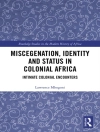Any reader of scholarship on the ancient and early medieval world will be familiar with the term ‘Germanic’, which is frequently used as a linguistic category, ethnonym, or descriptive identifier for a range of forms of cultural and literary material. But is the term meaningful, useful, or legitimate? The term, frequently applied to peoples, languages, and material culture found in non-Roman north-western and central Europe in classical antiquity, and to these phenomena in the western Roman Empire’s successor states, is often treated as a legitimate, all-encompassing name for the culture of these regions. Its usage is sometimes intended to suggest a shared social identity or ethnic affinity among those who produce these phenomena. Yet, despite decades of critical commentary that have highlighted substantial problems, its dominance of scholarship appears not to have been challenged. This edited volume, which offers contributions ranging from literary and linguistic studies to archaeology, and which span from the first to the sixteenth centuries AD, examines why the term remains so pervasive despite its problems, offering a range of alternative interpretative perspectives on the late and post-Roman worlds.
Matthias Friedrich & James M. Harland
Interrogating the ‘Germanic’ [PDF ebook]
A Category and its Use in Late Antiquity and the Early Middle Ages
Interrogating the ‘Germanic’ [PDF ebook]
A Category and its Use in Late Antiquity and the Early Middle Ages
Compre este e-book e ganhe mais 1 GRÁTIS!
Língua Inglês ● Formato PDF ● Páginas 276 ● ISBN 9783110701623 ● Editor Matthias Friedrich & James M. Harland ● Editora De Gruyter ● Publicado 2020 ● Carregável 3 vezes ● Moeda EUR ● ID 9434993 ● Proteção contra cópia Adobe DRM
Requer um leitor de ebook capaz de DRM












